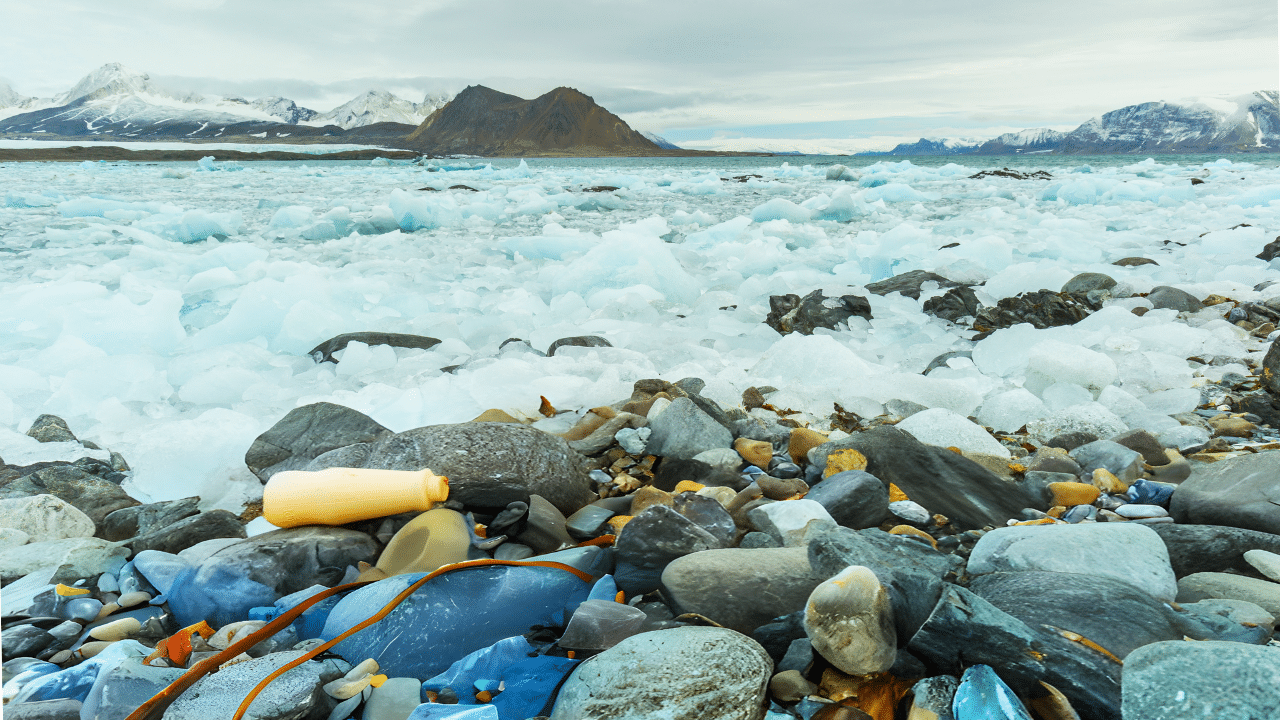The Arctic’s Plastics Crisis: Dangers to Health & Human Rights of Indigenous Peoples
June 4, 2024 @ 9:00am (AKDT)

The Arctic is warming nearly four times faster than the rest of the world, and Arctic Indigenous Peoples bear the brunt of the plastic and petrochemical industry’s toxic operations. Plastics and chemicals from all over the world are transported on atmospheric and oceanic currents northward, where they accumulate in the Arctic through a process called global distillation.
The production and use of fossil fuels by the petrochemical industry is the starting point for the damage faced by the Arctic related to plastics, chemicals, and climate change. These threats have combined to poison the lands, waters, and traditional foods of Arctic Indigenous Peoples, with ongoing health effects that threaten their cultures and communities.
A recent report jointly published by ACAT and the International Pollutants Elimination Network (IPEN) synthesizes recent evidence from more than 250 studies on the interconnected threats from plastics, petrochemicals, and climate change that harm Arctic Peoples. The report describes how the Arctic is at risk from chemicals and plastics throughout their toxic life cycle and offers recommendations in support of a just transition to a regenerative economy.
On Thursday, May 23 at 9:00 AM (AKST), CHE-Alaska will be joined Therese Karlsson, Pamela Miller, and Dalee Sambo Dorough in a discussion on how the combined effects of plastic pollution, petrochemical operations, and climate change are harming the health and well-being of communities in the Arctic. Pamela Miller, ACAT’s Executive Director and IPEN’s Co-Chair, and Therese Karlsson, IPEN’s Science & Technical Advisor, are the lead authors of the report. Dr. Sambo Dorough, Senior Scholar and Special Advisor on Arctic Indigenous Peoples at the University of Alaska Anchorage, will discuss the compounding effects of chemicals and plastics on Arctic Indigenous Peoples as a human rights issue.
CHE-Alaska is part of CHE’s broader network, which is an international partnership of almost 5,000 individuals and organizations in 87 countries and all 50 US states that are committed to addressing environmental impacts on human health across the lifespan.
We encourage you to become a CHE partner so you can receive their monthly email newsletters, announcements about upcoming webinars, and other updates on a range of environmental health topics. Visit www.healthandenvironment.org to learn more.
Featured speakers

Therese Karlsson, PhD specializes in plastics and other petrochemicals. With a decade of dedicated research, including doctoral studies at the University of Gothenburg, she delves into the origins, fate and impacts of plastic pollution. Currently serving as a Science and Technical Advisor at the International Pollutants Elimination Network (IPEN), she is working alongside over 600 civil society organizations worldwide. Driven by a passion for the protection of human health and the environment, she actively engages in international partnerships and citizen science projects, bridging local insights with global policy to reduce and eliminate the harm to human health and the environment from toxic chemicals.

Pamela Miller, the founder and Executive Director of ACAT since 1997, brings more than 35 years of research, education, and advocacy experience to her present work. In 2016, Pam was elected as Co-Chair of the International Pollutants Elimination Network (IPEN), a coalition of more than 600 environmental health and justice organizations working in 124 countries. She is also a principal investigator for community-based research projects supported by the National Institute of Environmental Health Sciences.
 Dalee Sambo Dorough, MALD, PhD
Dalee Sambo Dorough, MALD, PhD
